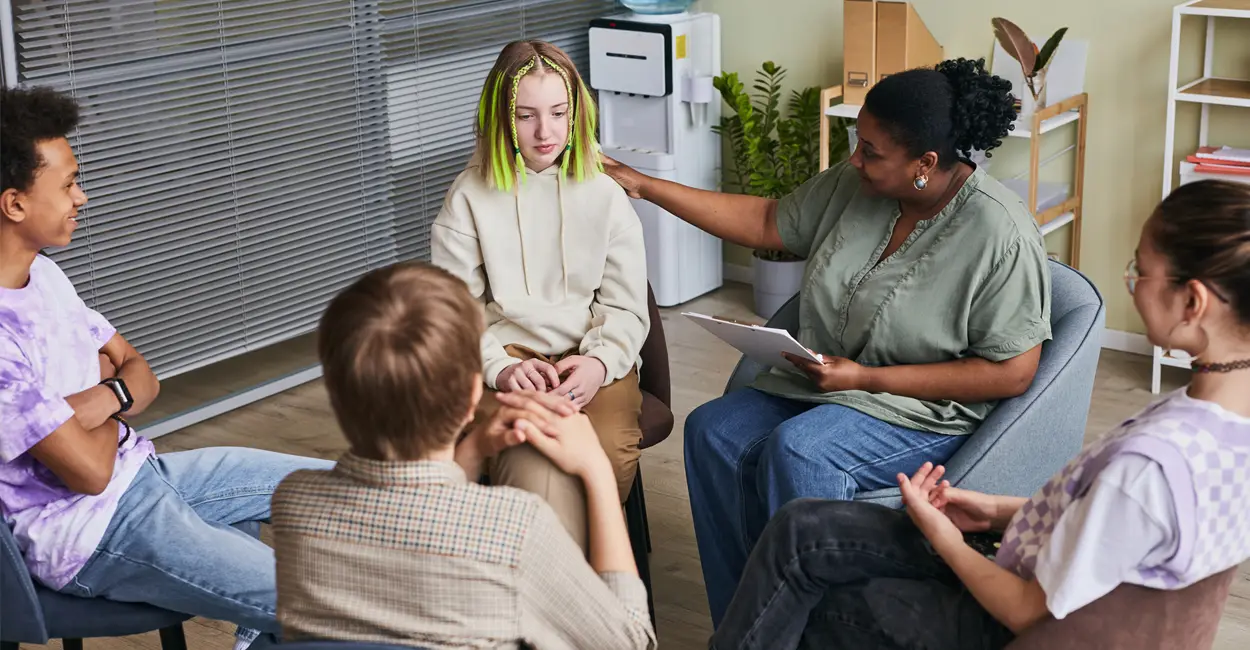24/7 Helpline:
(866) 899-111424/7 Helpline:
(866) 899-1114
Learn more about Group Therapy centers in Princeton
Group Therapy in Other Cities

Other Insurance Options

Aetna

Amerigroup

Health Choice

Kaiser Permanente

Multiplan

Lucent

BlueShield

Magellan

Absolute Total Care

PHCS Network

Group Health Incorporated

Health Partners

AllWell

Medical Mutual of Ohio

Health Net

MVP Healthcare

UMR

BHS | Behavioral Health Systems

Coventry Health Care

Anthem











































































































































































































































































































































































